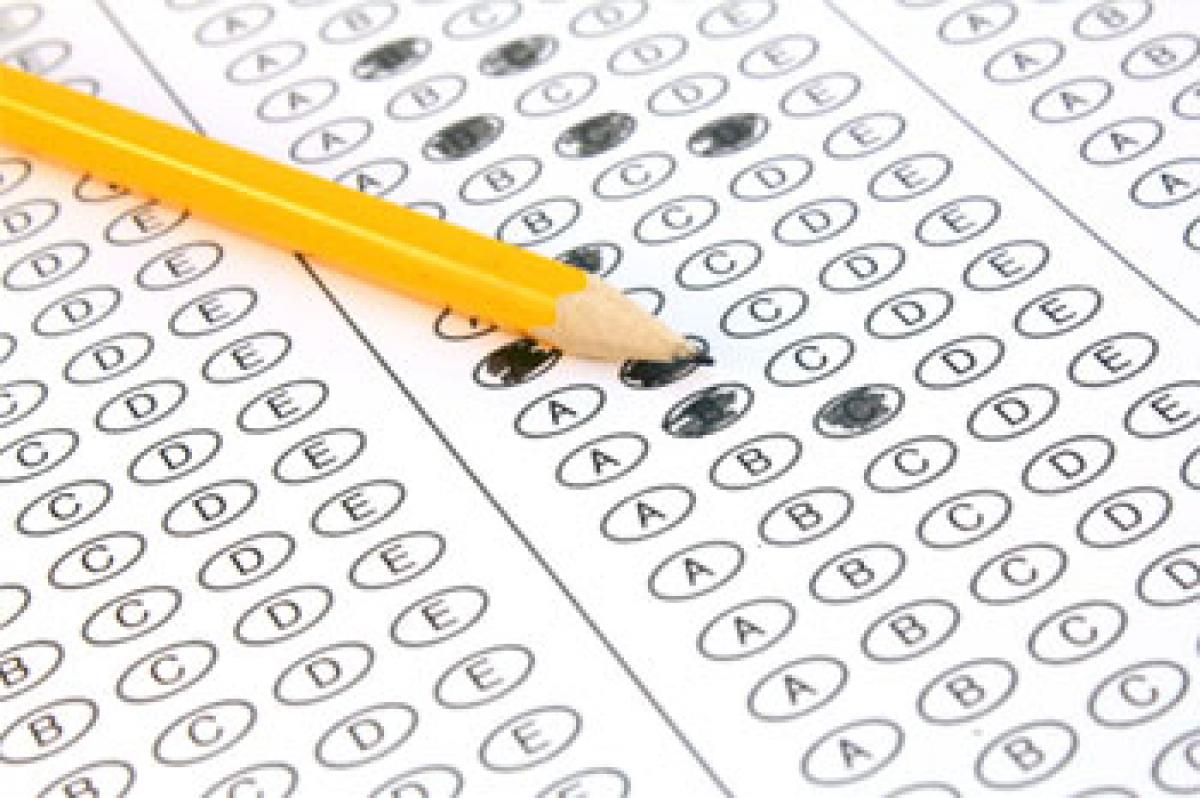Live
- Six Useful Strategies to Control Your Heart During the Pollution Season
- Phalodi Satta Bazar Predicts Close Race in Maharashtra Assembly Election 2024
- Federer Pays Heartfelt Tribute to Nadal Ahead of His Retirement: "An Epic Career"
- Odisha holds successful mega investors roadshow in Singapore
- PGTI Tour: Top stars to fight for honours in Servo Masters Golf
- SC upholds termination of LIC employee for absenting himself without intimation
- ‘Stone me or shoot me, won’t spare anyone,’ says Anil Deshmukh after discharge
- Siddaramaiah, Shivakumar turning Karnataka into Pakistan: K’taka BJP
- Zimbabwe records 70 suspected cholera cases, one death amid new outbreak
- Babri demolition day: No Assembly proceedings in Bengal on Dec 6
Just In

Experts say the way examinations are conducted needs an overhaul. Recently, over 600,00 prospective medical students were in for a shock after the Supreme Court in June had declared the All- India Pre- Medical Test invalid, after the question paper was leaked during the examination.
.jpg) New Delhi: Experts say the way examinations are conducted needs an overhaul. Recently, over 600,00 prospective medical students were in for a shock after the Supreme Court in June had declared the All- India Pre- Medical Test invalid, after the question paper was leaked during the examination.
New Delhi: Experts say the way examinations are conducted needs an overhaul. Recently, over 600,00 prospective medical students were in for a shock after the Supreme Court in June had declared the All- India Pre- Medical Test invalid, after the question paper was leaked during the examination.
The students, who had been preparing for the test, in some cases for three to four years, were left with no choice but to appear for the test again. Parents and students, especially those who felt they had performed well in the May 3 examination, were extremely upset.
“There is an urgent need to improve the way examinations are developed and conducted in the country. Right from the way a test paper is framed to the procedure involved for the candidates in taking the examination,” says Divyalok Sharma, Pearson VUE India director, client development.
Pearson VUE provides computer-based testing for information technology, academic, government and professional testing programmes around the world, and in India, it is conducting LSAT— India (for law admissions),
entrance examinations for new private universities and for reputed colleges like the Narsee Monjee Institute of Management Studies (NMIMS) in Mumbai. Sharma says the transition in India has already begun, though it still has miles to go. Better and increased use of technology can go a long way to prevent such leaks and cheating.
Most mass entrance exams in India are simply a filtering process. They pick the students who are most accurate with answers in a fairly short period of time. They do not test the applicant’s ability for aparticular profession. For instance,
typical law entrance exams do not test a student’s aptitude or skills to become a lawyer; they only test his math, English or general knowledge. Similarly, applicants to Indian Foreign Service and Indian Police Service are assessed on the same basis – the rank in the test determines which service the candidate is inducted into.
“ This doesn’t make sense, as those who may make good policemen may not make good diplomats,” says a former secretary of the government.
To cite an instance, Sharma says the LSAT — India examination paper ( conducted by Pearson VUE India) does not only test how quick and accurate a student is with English, math or analytical skills. It is designed to test whether the student has the aptitude and required skills to become a successful lawyer, no matter what background the student comes from.
Flexibility is important too.
Examinations ought to be taken by candidates when they are best prepared for it and should not be dependent on the performance on one day. Internationally, the security (this ensures proxy test taking is minimised) and convenience of the candidate are usually treated as paramount.
NMIMS, for instance, allows candidates to take the examination over a three- month period. One may take the examination on any day within this period.Sharma says employers point out that a candidate did well in, say, his final board examinations but did not perform well in a particular entrance.
“The candidate could simply be unwell or not favourably disposed on the day of the all- important test due to some extraneous reason. So, it is important for a potential employee to be judged on all their credentials, as well as the interview, and not on the results of one exam in isolation,” he says.
A senior human resource development ministry official says while the government is fully aware of ways to avoid leaks and the global international practices in conduct of examinations, cost is one of the factors that works against the solutions offered by companies like Pearson VUE and other global companies.
He, however, feels it is a matter of time before such solutions become the norm. Till then, parents and students will continue to suffer in silence.
Courtesy: Business Standard

© 2024 Hyderabad Media House Limited/The Hans India. All rights reserved. Powered by hocalwire.com







